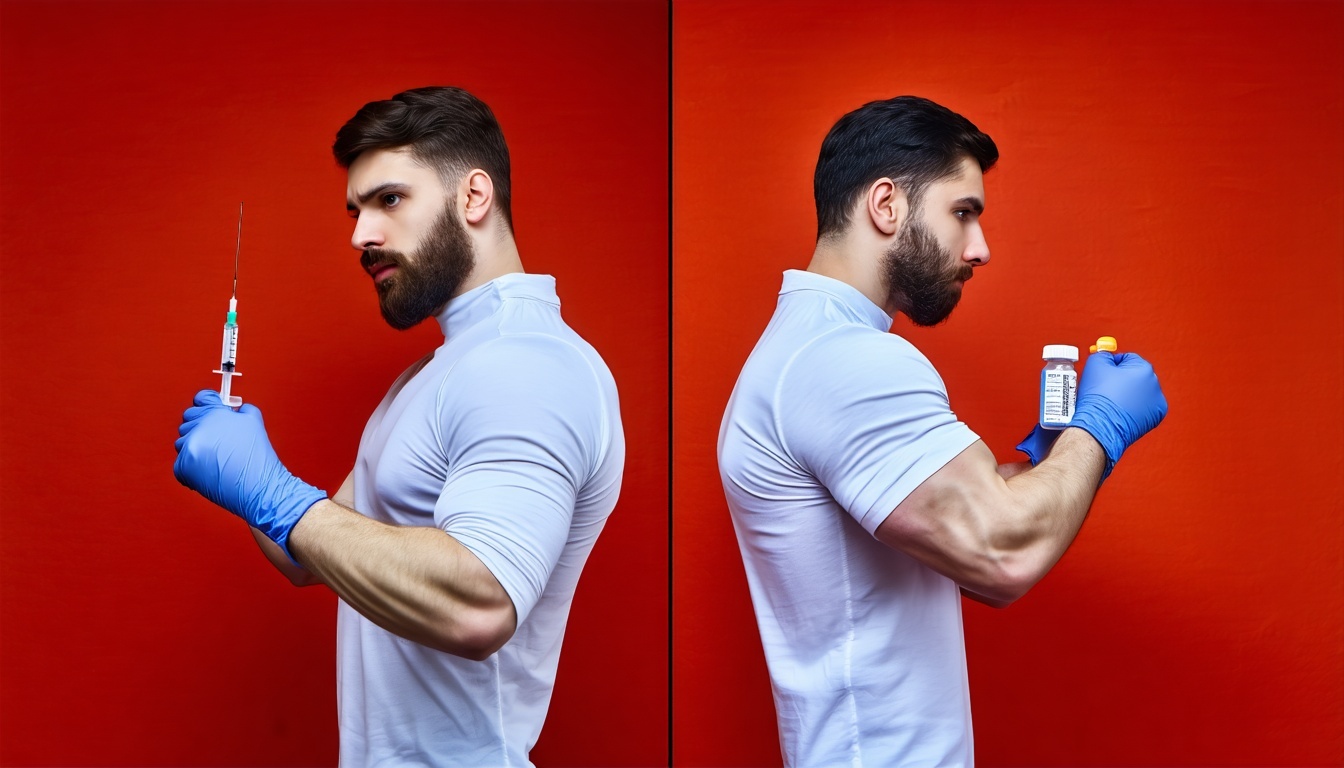TRT vs. Enclomiphene: The Ultimate Testosterone Showdown
It's the question that's keeping men up at night (ironically, while they're dealing with low testosterone): Should I go with traditional testosterone replacement therapy or try this enclomiphene citrate everyone's talking about? It's like choosing between a reliable old truck and a sleek new hybrid – both will get you where you want to go, but the journey will be very different.
This isn't just an academic debate. The choice between TRT and enclomiphene citrate can affect your fertility, your wallet, your daily routine, and potentially your long-term health. Make the wrong choice, and you might end up with buyer's remorse that lasts for years.
The good news? Both options are legitimate, scientifically-backed approaches to testosterone optimization. The bad news? The decision isn't as straightforward as most providers make it seem. Each has distinct advantages and drawbacks that make them better suited for different people and situations.
In this comprehensive comparison, we'll break down everything you need to know about TRT versus enclomiphene citrate: how they work, what the science says, who's the ideal candidate for each, and how to make the right choice for your specific situation. By the end, you'll have the knowledge to make an informed decision that aligns with your goals, lifestyle, and priorities.
Understanding the Fundamentals
Before we dive into the comparison, let's make sure we're on the same page about what we're actually comparing. These two approaches to testosterone optimization work in fundamentally different ways.
Traditional TRT: The Replacement Approach
Testosterone Replacement Therapy does exactly what the name suggests – it replaces your natural testosterone production with an external source. Think of it like using a generator when your home's electrical system isn't working properly.
TRT typically involves injectable testosterone cypionate or enanthate, testosterone gels or creams, testosterone pellets, or testosterone patches. The goal is to maintain testosterone levels in the upper-normal range (typically 700-1000 ng/dL) through consistent external supplementation.
Enclomiphene Citrate: The Stimulation Approach
Enclomiphene citrate takes a completely different approach – instead of replacing testosterone, it stimulates your body to produce more naturally. It's like fixing your home's electrical system rather than relying on a generator.
Enclomiphene works by blocking estrogen receptors in the hypothalamus, triggering increased LH and FSH production, stimulating natural testosterone production in the testicles, and maintaining natural hormone rhythms and feedback loops.
The result is often a doubling or tripling of natural testosterone production while preserving the body's normal regulatory mechanisms.
Medical Disclaimer: This content is for educational purposes only and does not constitute medical advice. Both TRT and enclomiphene citrate should only be used under the supervision of qualified healthcare providers. Individual results may vary, and all medical treatments carry risks. Consult with a licensed physician before starting any hormone therapy program.
Related Articles
- The Modern Man's Guide to Legitimate Hormone Optimization
- Enclomiphene Citrate: The Testosterone Booster That Doesn't Shut You Down
- Telehealth TRT: How to Get Testosterone Therapy Without Leaving Your Office
- HCG and Hormone Optimization: The Fertility Preservation Protocol
- The Busy Professional's Guide to Starting Hormone Optimization




